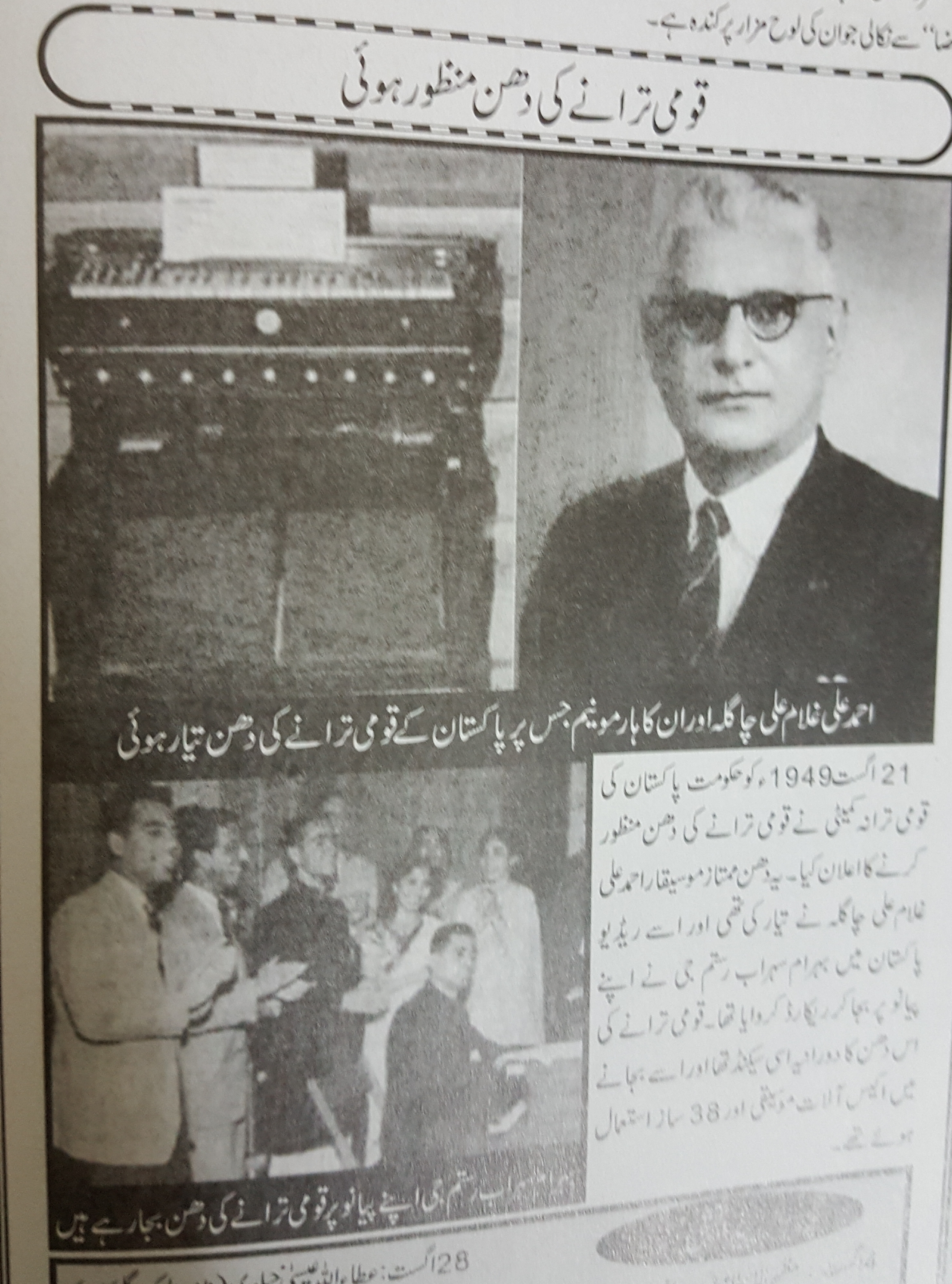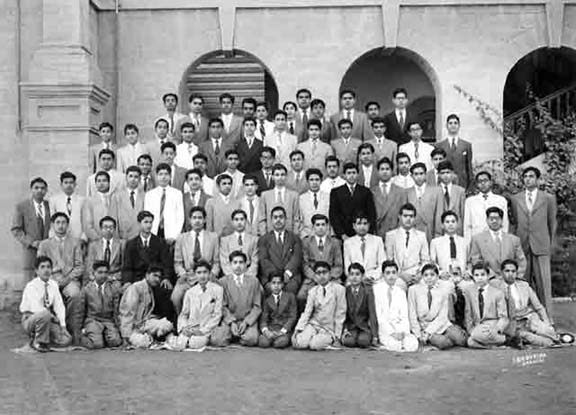|
|
Behram S.H.J. Rustomji was born in Karachi in
1912, the son of Sohrab and Tehmina Rustomji. The Rustomji family roots
had been established in Karachi by Seth Hormusji Jamshedji Rustomji, who
during the second half of the 19th century was popularly known
as the “Merchant Prince” for his business acumen and for the fame he
brought to the Karachi Parsee Community by employing hundreds of
Zarathushtis. Throughout Behram’s life and career, he carried the names of
his father Sohrab, grandfather Hormusji, and great-grandfather Jamshedji,
as initials S.H.J. in all his writings. This was his way of showing
respect and pride.
Behram (fondly called Behli) was an average
student at the Bai Virbaiji Soparivala (BVS) Parsi High School, but loved
participating in all the extracurricular activities. A student of Dr.
Maneck Pithawalla, the then principal of BVS Parsi High School, Behli
later became Pithawalla’s colleague as a teacher and vice principal, and
finally his successor, when he donned the mental of his mentor.
After completing his matriculation and a short
teaching period, Behli proceeded to UK in 1935 for further studies and
obtained a BA in education from Goldsmith College, University of London.
He also took courses at the Royal College of Music and attended summer
school at Cambridge. Within a year of his return from UK, Behli married
Gool Desai.
When Behli became the principal of BVS Parsi
High School in 1946, it was a year before the partition of the Indian
subcontinent and the impending influx of millions of Muslims. With the
agreement, understanding, and blessings from the first president of
Pakistan and father of the Nation - Mohammad Ali Jinnah, the school opened
its doors to thousands of Muslim immigrant students.
During 1947, when the nation of Pakistan was
established, the country was in search of a new Pakistani national anthem
to replace ‘God Save the King’. A family friend of Behli, Mr. Chagla had
just put together and composed the anthem with inspirational words and an
accompanying melody. While visiting Behli’s house, he hummed and tried
out the tune for Behli. At once, Behli played it on the piano, and hence
earned the distinction of being the first individual, a Zarathushti, to
play the tune of the newly created Muslim nation of Pakistan. The family
piano on which Behli played the Anthem (a gift by Behli’s late father
Sohrab to his wife Tehmina) is indeed a valuable piece of history!
 |
|
Behram "Behli" Rustomji playing the new anthem in 1950 |
Behli’s vision of the ideal school environment
was keeping a fine balance between the required educational syllabus and
his passion for extracurricular activities. He strongly believed that
academics without extracurricular activities would not give students a
competitive edge and therefore made sure that all students, irrespective
of individual impairment and interest levels, were given opportunities and
encouragement to participate fully. In fact, Behli took the personal
responsibility to see that each and every student during their senior
years got his fair share of both. Academically, the BVS Parsi High School
was among the best in the metropolitan city of Karachi. The tradition of
excellence continues today, and it is one of the most sought after schools
in the nation.
 |
|
Behram "Behli" Rustomji in Parsee High School, Graduating Class of
1956 |
Behli strongly believed that exposing a
student to the ‘world’ was as important as learning textbook material,
attaining high grades, and passing exams. He therefore brought the
‘world’ to the classrooms and assembly halls of BVS. Local, national, and
international dignitaries, academicians, entrepreneurs, ambassadors, and
high governmental officials, were all guests and frequent visitors to the
school. Officials from the embassies of United States, United Kingdom, and
Iran were among the most frequent visitors. They understood the value of
a good well-rounded education and saw in Behli, the strong and dedicated
leadership to accomplish these results and benefit the students. They
provided the most up-to-date technologies in improving the school’s
communication and vocational training equipment. Recognizing that not all
students will pursue college careers, Behli made sure that vocational
curriculum was provided for those students who chose to pursue it. BVS
Parsi High School thus became one of the first high schools in Karachi, to
offer matriculation with vocational training and education. BVS was also
one of the first schools in the city of Karachi, to be hooked-up with a
internal public broadcasting system (PBS) in each and every classroom,
recreational facility, and assembly hall. World famous institutions like
the US-based Ford Foundation, and the UK-based British Council provided
monetary and material support (books, equipment, fixtures, furniture,
etc.) to the school, once again, mainly due to their strong respect and
high opinion of Behli’s educational commitment. Some experienced teachers
were sent to UK, not only to specialize in their areas of expertise, but
also to teach as guest teachers in UK schools. In interschool debates,
dramatics, elocution competitions, sporting events, marching band,
scouting, and ambulance brigade, the boys from BVS were always looked upon
by rival schools as formidable adversaries. Behli took pride and joy in
these events and made sure that the boys lived up to the high expectations
set by their predecessors – the old Virbaijeeites.
As a school that was founded on Zarathushti
values & principles, religion played an important part in the daily
running of the school. Behli believed in daily morning prayers for all the
students before the commencement of the classes. Praying took place in
separate prayer halls for the Zarathushtis, Muslims, Hindus, and
Christians students – a unique multi-faith activity with equal respect and
tolerance for all faiths.
In the 19 years he served as principal, Behli
preferred to be addressed as Headmaster or Sir rather than Mr. or
Principal, a preference resulting from an affinity for British tradition.
Behli resigned as principal of BVS Parsi High School in 1965 to pursue
other educational and scholarship activities in Pakistan. With his wife
Gool, he co-authored a translation of “Dastur Dhalla – An
Autography” from Gujarati into English. In 1940, Behli published a
book titled, ‘Teachings of Zarathushtra’ and his last publication
was titled “Karachi (1839-1947).”
In addition to his fulltime profession of
teaching, Behli was actively involved with many community associations
such as Karachi Parsi Collegiate Union, Young Men’s Zoroastrian
Association, Karachi Parsi Institute, and Dastur Dhalla Memorial
Institute. Behli was on the managing committee of Karachi Theosophical
Society, the Pak-Iran Cultural Society, Sind Boys Scouts Association,
Pakistan-United Nations Organization, and various educational bodies. He
was instrumental in organizing the first All Sind Educational Conference
and played an active role during the visit of the Mohammad Reza Pahlavi –
The Shah of Iran to Karachi. He initiated the Duke of Edinburgh Award
Scheme at the Rangoonwalla Center, a foundation he had assisted in forming
earlier. Behli was also was the motivator and organizer of nine youth
conferences, countless concerts, annual scout expositions, and producer &
director of many musical shows.
It would be difficult for Behli to say whether
his first love was education or music, as he has given as much of himself
in the line of music, as education. He composed many songs in English and
Gujarati which are still sung and remembered, including the Zarathushti
prayer - Ashem Vohu. Behli was blessed with a great “musical ear”
and after hearing something just once, he could reproduce it on the piano,
making it sound like a well-composed concerto. He was most comfortable at
the keyboard and presented himself as an accomplished pianist. One of his
favorite and most played pieces was the so-called ‘Parsee Anthem’
(composed by his late mentor Dr. Pithawalla), which he enjoyed playing
with gusto on the piano and singing enthusiastically in his baritone like
voice, while directing the school’s chorus (sung on the music of Sir
Edward Elgar’s Land of Hope and Glory from Pomp and Circumstance March,
No.1 in D):
Children of the Royal Race of Noshirwan,
Rally round his banner, sing of old Iran
Charity and Ashoi, these are watch-words true,
Mazda Lord of Good Mind, ever will save you,
Mazda Lord of Good Mind ever will save you.
A hero-worshipper at heart, his three mentors,
Dr. Maneck B. Pithawalla, (DSc, FRGS, principal of BVS Parsi school
from1920 to 1946); Shams-ul-Ulema Dastur Dr. Manckjee N. Dhalla, (PHD, D
Litt., High Priest of Pakistan from 1909 to1956); and, Jamshed Nusserwanji
Mehta, (Mayor of Karachi in 1933) had molded and impacted Behli’s life to
a great extent. Pithawalla exposed Behli to the noble profession of
teaching, Dhalla taught Behli the practice of the Zarathushti principles
of truth and good mind, and Nusserwanji (Mehta), showed Behli the trait of
helping mankind through social work and charity. The three gurus shaped
and guided Behli’s life and in turn, the lives of the thousands of pupils
who benefited from Behli’s wisdom, amiability, and actions.
Throughout his life, Behli remained a man of
high principles and strong convictions. His work ethics include
non-discrimination at all levels, fairness, truth, honesty, hard work, and
shunning people who indulged in politics, especially when the stakes
impacted the education and welfare of his pupils. He never compromised on
these principles and remained committed to his vision at all times.
During his golden years and in spite of his
failing health, Behli remained active by writing regularly in magazines
and journals like the Mumbai-based Parsiana and Jam-e-Jamshed,
US-based FEZANA, and Karachi-based OSHAO, What’s On, and
Parsi Sansar. He was ready to give his wise council to those who
sought it, always using the principle of ASHA as his guide.
Behli Rustomji passed away on December 14,
2002 at the age of 90 in Mumbai. He now joins his beloved wife and life
partner, Gool, and leaves behind three accomplished daughters, Roshni
Rustomji of California, Armaity Desai of Mumbai, and Soonamai Dessai of
California.
His pupils around the world will always
remember him with respect, admiration, and fondness, and carry with them
the torch Towards That Best Light. |